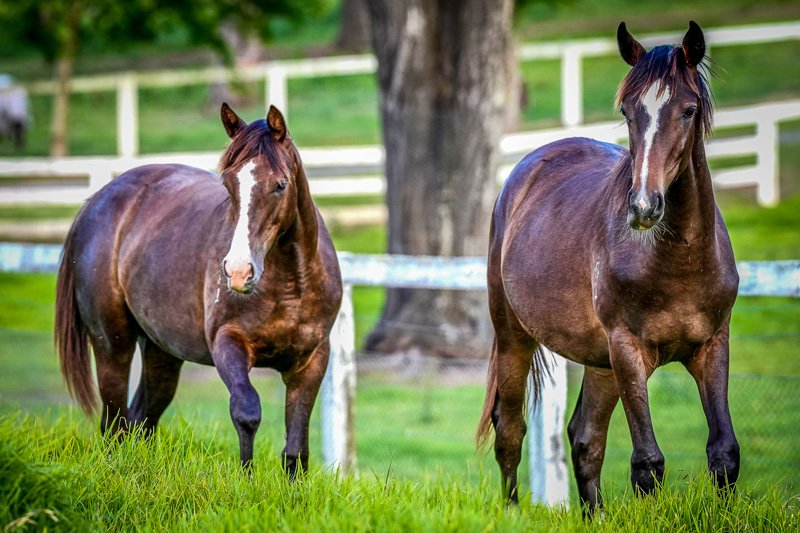From the stables of Riyadh to the endurance tracks of Dubai, Arabian horses are prized across the Gulf for their beauty, stamina, intelligence, and lineage. In a region where horses are not only sport animals but cultural treasures, cloning is emerging as a revolutionary way to preserve and perpetuate the bloodlines of champions.
Why Clone a Horse?
Selective breeding has brought forth horses with elite traits — exceptional speed, endurance, symmetry, and composure. But breeding, even at its most refined, introduces genetic variability. A foal from two champions might not inherit the desired combination of traits.
Cloning eliminates this unpredictability by producing a genetic twin of the donor horse. It’s not a replacement but a powerful method to preserve once-in-a-generation genetics. For champion stallions that have passed away or mares that are no longer fertile, cloning offers a second chance at continuation.
How the Process Works
Horse cloning follows the somatic cell nuclear transfer (SCNT) method:
- A tissue biopsy is taken from the horse (skin or ear is common)
- Live cells are cultured and preserved in a biobank
- The nucleus of a donor egg is removed and replaced with the genetic material of the original horse
- The embryo is implanted into a surrogate mare for gestation
The result is a foal genetically identical to the original — able to carry forward its legacy in sport, breeding, or cultural preservation.
Heritage Meets High-Tech
The Arabian horse is a cultural icon of the region, representing prestige, pride, and tradition. For many Gulf families, champion horses are irreplaceable — and cloning is not only about science but legacy.
Owners are increasingly turning to cloning to:
- Preserve bloodlines of famous or deceased champions
- Replicate elite performance horses for endurance and show circuits
- Retain valuable stallions or mares who can no longer reproduce naturally
Cloning ensures that even if a legendary horse suffers illness, injury, or age-related infertility, its contribution to the gene pool is not lost.
Veterinary Precision and Timing
Timing is critical. A live biopsy provides the highest cell quality, ideally while the horse is still healthy. For deceased horses, the body must be stored in a refrigerator at 4°C and biopsied within 48–72 hours to retrieve viable cells. Freezing the body reduces success rates drastically.
Skytyx supports the full pipeline:
- Biopsy collection in the UAE and Saudi Arabia
- Cell culture growth services
- Cryopreservation and long-term banking
- Embryo development and international lab partnerships
Challenges and Breakthroughs
Horse cloning is complex, with several technical and ethical considerations:
- Costs typically start at $140,000 USD per cloned horse
- First-time success rates can vary, especially in high-endurance breeds
- Long gestation periods and care for surrogate mares add layers of management
Despite these challenges, the Gulf is witnessing rapid progress. AI-enhanced monitoring, advanced embryo grading, and integration with breeding registries are streamlining the process.
In the UAE and Saudi Arabia, dedicated horse research centers and elite veterinary clinics are building capacity to localize more of the process, reducing reliance on overseas labs.
Expanding Applications Beyond Racing
Beyond sport and prestige, cloned horses are starting to play a role in:
- Therapeutic riding programs, ensuring predictable temperaments
- Conservation of rare bloodlines, including desert-adapted horse variants
- Cultural representation, preserving traits of horses with tribal or historical significance
These broader applications are turning cloning into a tool for equine sustainability, not just sport.
The Gulf’s Role in Global Equine Genetics
As global interest in equine cloning grows, the Gulf is positioning itself as both a leader and innovator. With its strong equestrian tradition, investment in biotechnology, and deep respect for animal heritage, the region is uniquely placed to shape the next generation of equine science.
Skytyx works alongside breeders, royal stables, and international labs to:
- Protect and expand the legacy of top Arabian horses
- Offer customized cloning roadmaps for rare or retired animals
- Guide families and stables through ethical and logistical decisions
Carrying the Bloodline Forward
In the world of horses, legacy is everything. Cloning doesn’t replace history — it protects it. For the Gulf’s most cherished equine champions, cloning is a way to ensure that greatness doesn’t vanish with age or accident.
Whether you want to honor a legendary stallion, safeguard an endangered bloodline, or invest in your stable’s future, cloning offers a bridge between tradition and tomorrow.
At Skytyx, we make that bridge real — one cell, one embryo, one champion at a time.
